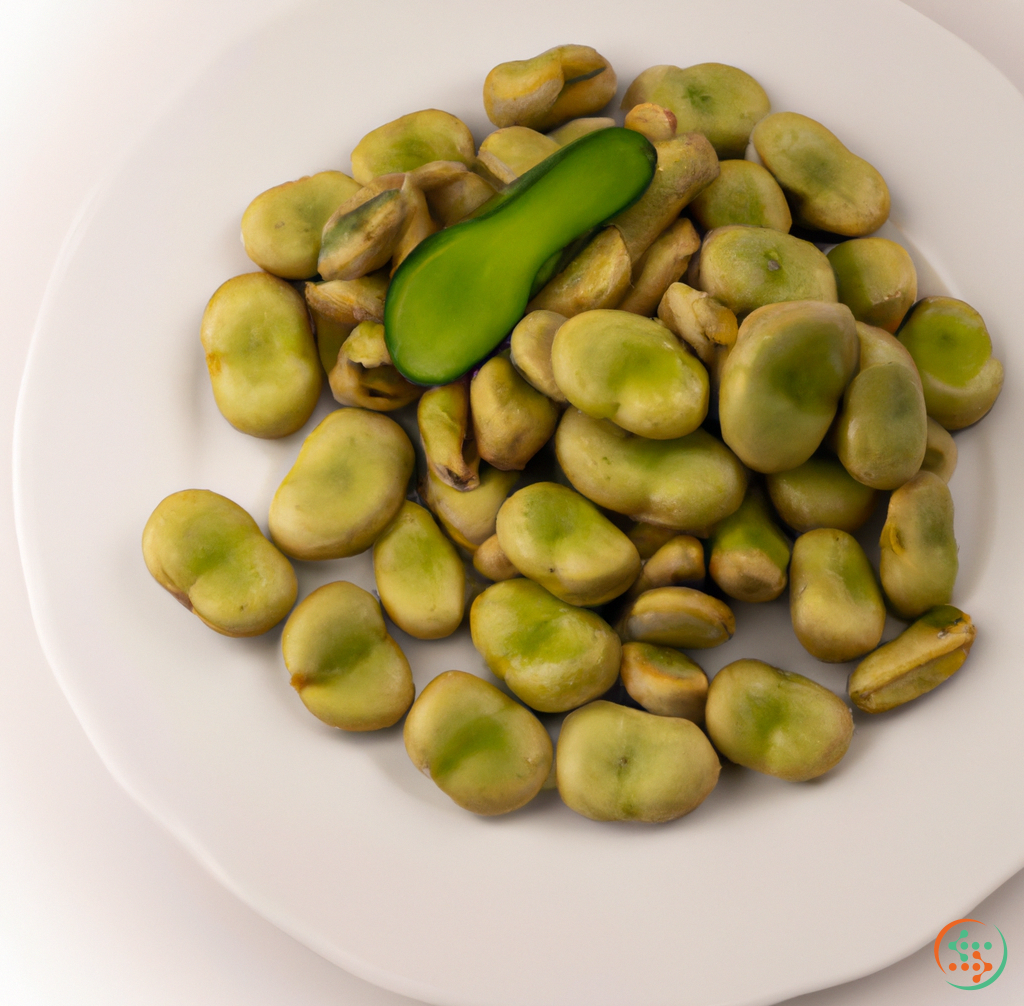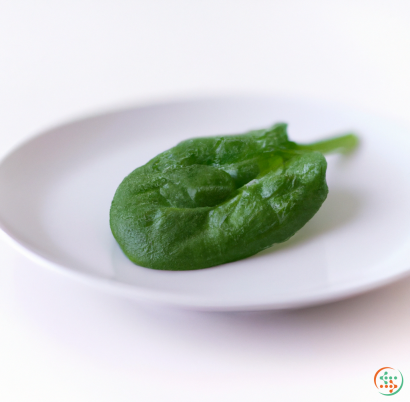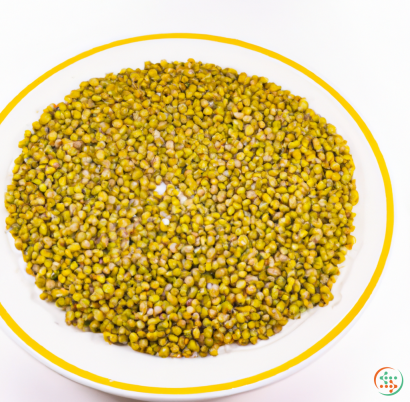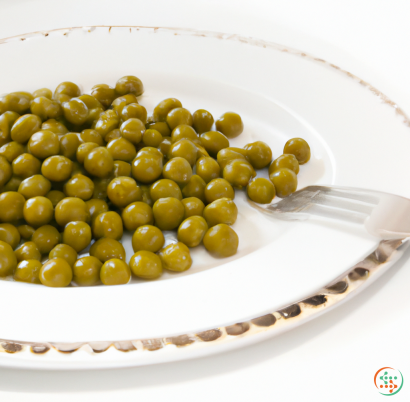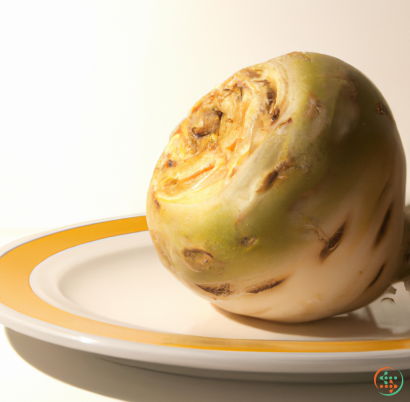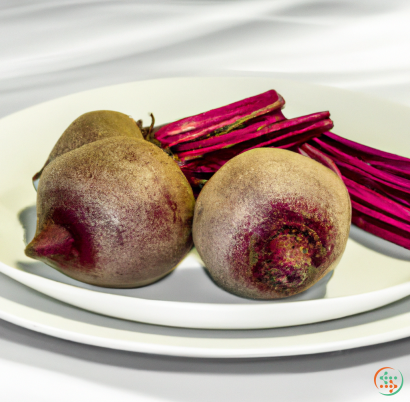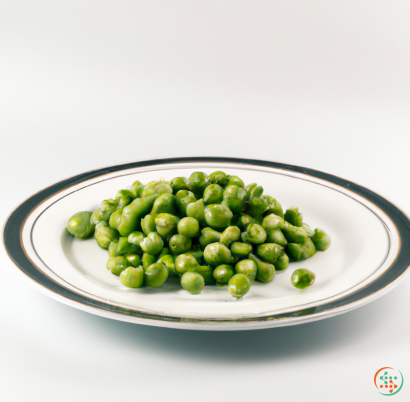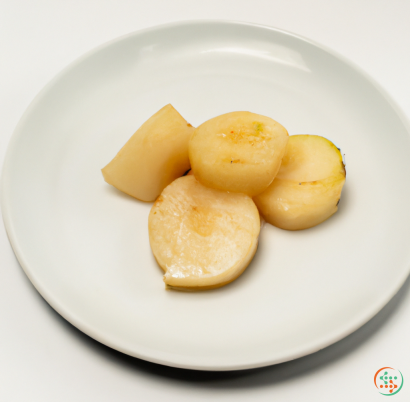Broad Beans
Broad beans, also known as fava beans, are a type of legume native to the Mediterranean and Middle Eastern regions. They have long been cultivated for their nutritious and versatile pods, which can be eaten fresh or dried and made into a range of dishes. The plant itself is fairly hardy and can be grown in a variety of climates, making them a popular crop for farmers and gardeners alike.
Broad beans are believed to have been among the first cultivated plants in the world and have been a staple of diets for thousands of years. They’re packed with nutrients such as fiber, protein, and various vitamins and minerals, making them an incredibly healthy food choice. They are also quite versatile, as they can be eaten in a variety of ways - either fresh, dried, or processed into a paste.
The most common way to enjoy broad beans is to cook the pods whole in soups and stews or boil and mash them until they are soft and creamy. The beans can also be used to make large salads and dips, stir-fries, and even sweets. In addition, they are great cooked in curries and sauces, or enjoyed as part of a healthy vegetarian dish.
Not only are they delicious, but they’re also incredibly good for you. The pods contain a high amount of fiber which helps to keep your digestion regular and keep your blood sugar levels stable, as well as providing you with nutrients such as folate and magnesium. Broad beans are also a good source of plant-based protein, which is essential for building and repairing tissues in our bodies.
Broad beans can be commonly found in grocery stores throughout the year. When selecting them, look for pods that are firm and green, with no black spots or mold. If the beans have already been shelled, check for any discoloration; fresh beans should have a bright green color. However, if the broad beans have been dried, they can be stored in airtight containers in a cool, dry, dark place and enjoyed for several months or even a year or two.
When preparing broad beans, start by soaking the beans overnight before cooking - this helps to reduce the phytic acid that can cause digestive discomfort, as well as reduce the cooking time. Once they’re soft, they can be boiled or steamed until tender, or alternatively chopped and added to sauces and curries.
Broad beans are an excellent source of plant-based nutrition and an extremely versatile food that can be enjoyed in many different recipes. Whether you’re a vegan, vegetarian, or just looking for a tasty meal, give broad beans a try for a healthy and balanced diet.
Broad beans, also known by their scientific name Vicia faba, are a popular legume enjoyed in many parts of the world. From the Mediterranean to the Middle East and North Africa, broad beans have been a popular dietary staple for centuries. Not only are these tasty beans full of essential proteins, vitamins and minerals, but they also boast an incredibly fascinating lifecycle that starts in the seedbed and ends up on your dinner plate. In this blog post, we'll take a closer look at how broad beans go from seed to spoon, and the various steps involved in the process.
The Life Cycle of a Broad Bean
Broad beans are legumes and grow on bushy plants with short stems that can reach up to 1.2m in height. Each plant produces several pods called legumes, which are filled with small, round beans.Although the broad bean plant is hardy enough to survive nearly all climates, it particularly thrives in temperate and subtropical regions.
Once the broad bean seed is planted in seedbeds and the plants are established, the flowering stage begins. Depending on the climate, the flowering stage may occur during early spring or late autumn. During the flowering period, the bean flowers provide an important source of food for local wildlife, especially bees and other insects. The flowers eventually develop into pods, each containing several beans.
Once the pods are ripe, they are harvested and the beans are removed from the pods and collected. They are then dried and cleaned in preparation for the next step in the life cycle.
Processing and Packaging
Once the beans have been collected, they are taken to a processing or packaging facility. Depending on the local regulations and laws, the broad beans may be processed and packaged for sale in the country of origin, or for export overseas.
At the processing facility, the broad beans are sorted and graded according to size and quality. They are then placed in containers or bags and prepared for delivery. The containers or bags are usually marked with information such as the product name, the country of origin, and the packaging date. The broad beans may also be treated with chemical substances in order to protect them from pests or disease.
Delivery and Storage
Once the broad beans have been processed and packaged, they are ready for delivery. Depending on the destination, the broad beans may be transported by road, air, or sea. In most cases, they are shipped in refrigerated containers in order to ensure a safe and fresh delivery.
Once they have reached their destination, the beans are stored in cool, dry warehouses or storehouses in order to maintain their freshness and quality. They may be stored in containers or on pallets to prevent them from being damaged or contaminated.
Preparing Broad Beans for the Table
Broad beans are a versatile ingredient that can be enjoyed in a variety of dishes. The beans can be boiled, steamed, baked, fried, or added to soups and other savory dishes.
Before they are prepared, the beans must be pre-soaked in cold water for several hours. This softens the tough skin of the beans and reduces the cooking time. After soaking, the beans must be thoroughly washed in cold running water to remove any dirt or residue. The beans are then separated from their pods, and any beans that are too large or not fresh should be discarded.
The beans can then be cooked in a variety of ways. The most popular methods are boiling and steaming, though the beans can also be added to stews and soups or used in stir-fries.
Conclusion
Broad beans are a beloved legume enjoyed in many parts of the world. The fascinating process of how broad beans go from seed to spoon involves several steps, including planting, flowering, harvesting, processing, packaging, delivery and storage, and preparing for the table.
By understanding the life cycle of the broad beans, we can better appreciate the journey it takes to get from seedbed to dinner plate. This can help us to understand the importance of enjoying the beans in their freshest, most natural form.
| Vitamin A | 0.014 mg | |
| Vitamin C | 0.0198 grams | |
| Vitamin B1 | 0.13 mg | |
| Vitamin B2 | 0.09 mg | |
| Vitamin B3 | 0.0012 grams | |
| Vitamin B5 | 0.07 mg | |
| Vitamin B6 | 0.03 mg | |
| Vitamin B9 | 0.058 mg |
| Calcium | 0.018 grams |
Daily Value 1.3 g
|
| Iron | 0.0015 grams |
Daily Value 0.018 g
|
| Magnesium | 0.031 grams |
Daily Value 0.4 g
|
| Phosphorus | 0.073 grams |
Daily Value 1.25 g
|
| Potassium | 0.193 grams |
Daily Value 4.7 g
|
| Sodium | 0.041 grams |
Daily Value 2.3 g
|
| Zinc | 0.47 mg |
Daily Value 0.011 g
|
| Copper | 0.06 mg |
Daily Value 0.9 mg
|
| Manganese | 0.26 mg |
Daily Value 0.0023 g
|
| Selenium | 0.001 mg |
Daily Value 0.055 mg
|
| Tryptophan | 0.048 grams | |
| Threonine | 0.178 grams | |
| Isoleucine | 0.215 grams | |
| Leucine | 0.37 grams | |
| Lysine | 0.313 grams | |
| Methionine | 0.037 grams | |
| Cystine | 0.066 grams | |
| Phenylalanine | 0.195 grams | |
| Tyrosine | 0.168 grams | |
| Valine | 0.235 grams | |
| Arginine | 0.397 grams | |
| Histidine | 0.115 grams | |
| Alanine | 0.195 grams | |
| Aspartic Acid | 0.541 grams | |
| Glutamic Acid | 0.733 grams | |
| Glycine | 0.197 grams | |
| Proline | 0.216 grams | |
| Serine | 0.21 grams |
| Total Sugars | 0.131141 grams |
per 100g
|
| Palmitic acid (16:0) | 0.12 grams |
|
| Stearic acid (18:0) | 0.02 grams |
|
| Total Saturated fatty acids: | 0.14 g | |
| Oleic acid (18:1) | 0.02 grams |
|
| Total Monounsaturated fatty acids: | 0.02 g | |
| Linolenic acid (18:3) | 0.18 grams |
|
| Linoleic acid (18:2) | 0.12 grams |
|
| Total Polyunsaturated fatty acids: | 0.3 g | |
